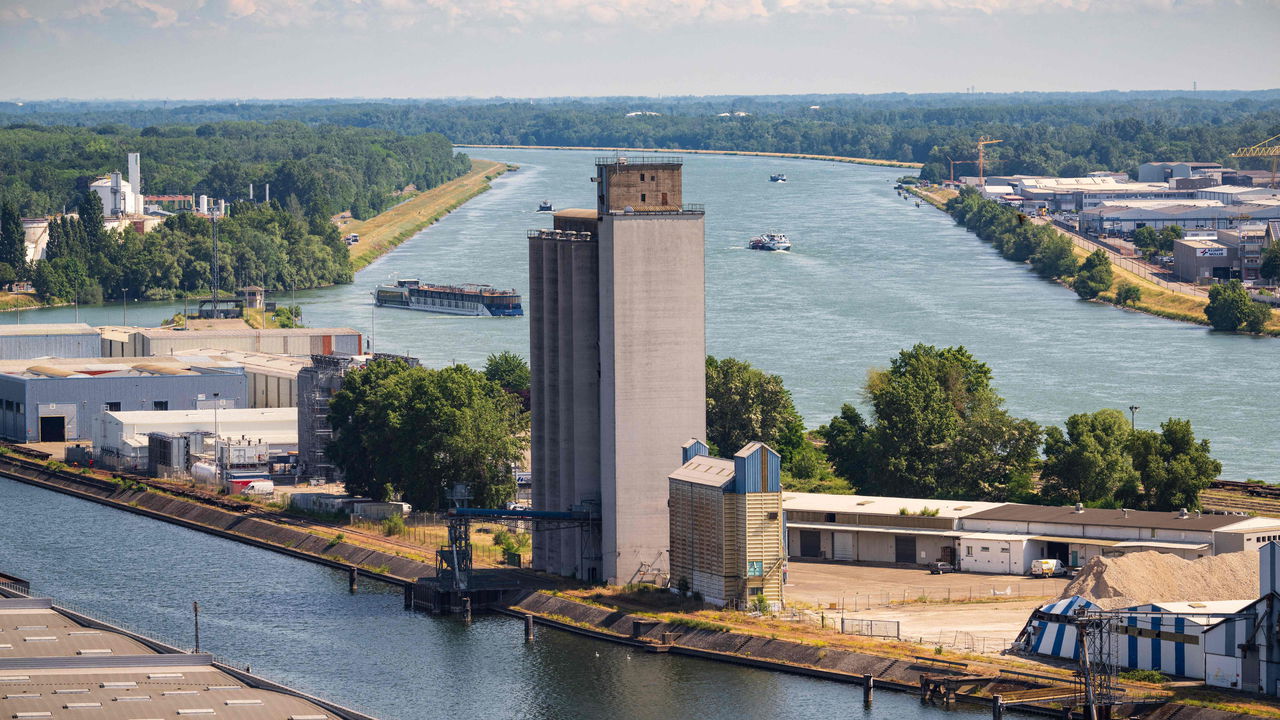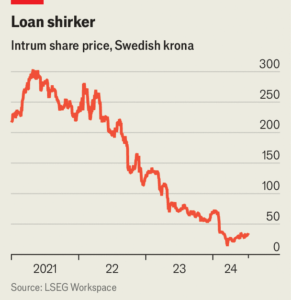
Your browser does not support the <audio> element.
GERMAN POLITICS is followed closely in Paris. So is French politics in Berlin. Olaf Scholz, the German chancellor, said on July 8th that he was “relieved” that the far right failed to win the French parliamentary election on July 7th. What Mr Scholz did not mention were worries in German companies about what the New Popular Front (NFP), the leftist alliance which won the most votes and includes a hard-left element led by a former Trotskyist, have in store for business.
What happens to French business matters to Germans because ties between Deutschland AG and France SA are closer than ever. Germany is France’s biggest export market and its biggest trading partner. France is likewise among the largest recipients of German goods and services. Businesses in each country invest a lot across the Rhine. Airbus, a Franco-German planemaking Goliath worth over €100bn ($108bn), is among Europe’s most valuable companies. Siemens, a German engineering conglomerate, and Alstom, a French one, were blocked by EU trustbusters from creating an Airbus for trains but still plan to build locomotives together.
Other cross-border ventures are proliferating. Siemens Energy, which was spun off from Siemens and makes power equipment, and Air Liquide, a French purveyor of industrial gases, are co-operating to manufacture large-scale electrolysers to produce hydrogen, a promising clean store of energy. French and German armsmakers are in talks about the joint production of a combat tank.
Then there are the personal ties. Scores of Germans sit on French company boards. Annette Messemer, a German banker, is a director at four big French firms: Vinci (construction), Imerys (industrial materials), Savencia (dairy) and Société Générale (a bank). One German, Thomas Buberl, runs AXA, one of Europe’s biggest insurers. Another, Peter Herweck, heads Schneider Electric, another big engineering firm. Although no French citizen has so far been named chief executive of a German blue-chip company, a study in 2022 by EY, a consultancy, identified ten of them on executive boards of large listed German businesses (they were tied with Britons and behind only Americans).
This closeness is the result of vibrant networks linking French and German business, says Marie-Avril Roux Steinkühler, a French lawyer who has lived and worked in Berlin for decades. The most established business network is the Franco-German Chamber of Commerce, founded in 1955. The Franco-German Youth Office, set up under the Elysée Treaty which France and Germany signed in 1963, has over six decades helped more than 9m youngsters participate in 382,000 exchange programmes. La French Tech, a more contemporary networking platform to promote French technology firms, has busy hubs in Berlin, Munich and Düsseldorf.
Bonds between German and French business are likely to grow even closer. Yes, the lingua franca will increasingly be English: the brightest French pupils no longer pick German as their first foreign language and German ones are less francophile. And some cultural differences will remain forever unresolved. The French are unlikely to understand Germans’ passion for honorifics, such as Herr Doktor. The Germans, used to cordial labour relations, will always struggle to comprehend French workers’ penchant for militant protests.
At least German executives may be about to get plenty of learning opportunities. If the NFP’s hard-left faction is sidelined by a more centrist coalition government, its trade-union allies will make their displeasure known. It will be felt nearly as acutely in Berlin as it will be in Paris. ■
To stay on top of the biggest stories in business and technology, sign up to the Bottom Line, our weekly subscriber-only newsletter.















